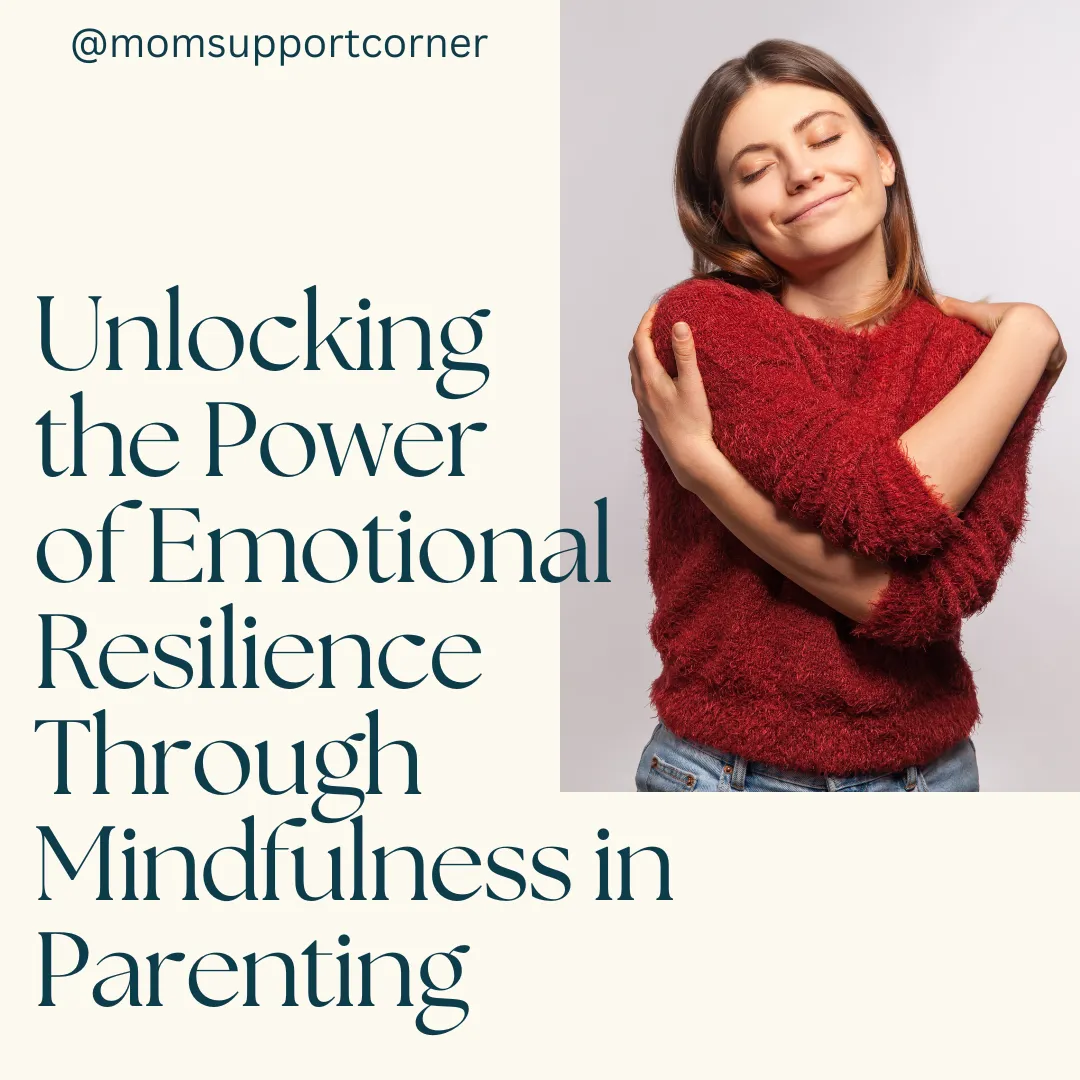
Unlocking the Power of Emotional Resilience Through Mindfulness in Parenting
Parenting is a profound journey, filled with both joy and challenges. As parents, we strive to nurture, teach, and guide our children, but often find ourselves struggling to manage the whirlwind of emotions that come with it. From the tantrums of toddlers to the rebelliousness of teenagers, the emotional landscape of parenting can be overwhelming. This is where mindfulness can become an essential tool in cultivating emotional resilience—not just for ourselves, but for our children too.
Mindfulness is more than just a trendy buzzword; it’s a practice that, when embraced, can transform the way we parent. By staying present, aware, and attuned to both our emotions and our children’s needs, we can create a deeper connection and handle difficult situations with calm and clarity.
What Is Mindfulness in Parenting?
At its core, mindfulness is the practice of bringing one’s full attention to the present moment, without judgment. It involves noticing our thoughts, emotions, and sensations as they arise, rather than reacting automatically to them. In the context of parenting, mindfulness means being fully present with your child, listening deeply, and responding with awareness, rather than being driven by stress, frustration, or old emotional triggers.
For example, imagine your child is having a meltdown over something that seems trivial—like not getting their favorite snack. In moments like these, it’s easy to react emotionally, especially when you’re tired, stressed, or dealing with your own emotions. However, mindfulness invites you to pause, take a breath, and observe your emotions before responding. This pause allows you to choose a thoughtful, compassionate response rather than reacting out of frustration.
Building Emotional Resilience Through Mindfulness
Emotional resilience is the ability to adapt and thrive in the face of stress, adversity, or emotional challenges. As parents, emotional resilience is essential because it helps us navigate the inevitable ups and downs of family life without being overwhelmed. When we are emotionally resilient, we can manage our stress, regulate our emotions, and model healthy coping strategies for our children.
Mindfulness strengthens emotional resilience by helping us:
1. Regulate Our Emotions
Mindfulness helps us become aware of our emotions as they arise, giving us the power to choose how we respond. Rather than being swept away by anger or frustration, we can observe those feelings and take a moment to center ourselves. This emotional regulation not only benefits us but also teaches our children how to manage their emotions.
2. Reduce Stress
Parenting is stressful. Between juggling work, household responsibilities, and the constant demands of raising children, it’s easy to feel overwhelmed. Mindfulness practices, such as deep breathing, meditation, or even a mindful walk, can help reduce stress by calming the nervous system and bringing us back to the present moment.
3. Respond Rather Than React
When we’re stressed or emotionally triggered, we tend to react impulsively—often in ways that don’t serve us or our children. Mindfulness allows us to pause and consider the best response in any given situation. This can be especially helpful in moments of conflict or emotional intensity, where mindful responses can de-escalate the situation and foster understanding.
4. Model Emotional Intelligence
Children learn by observing their parents. When we practice mindfulness, we’re modeling emotional intelligence—showing our children how to recognize and process their own emotions. As they watch us stay calm, centered, and thoughtful in the face of challenges, they begin to develop those skills themselves.
Practical Mindfulness Strategies for Parents
Mindfulness doesn’t require hours of meditation or a complete overhaul of your daily routine. In fact, small, simple mindfulness practices can have a profound impact on your emotional resilience and the way you interact with your children. Here are a few practical strategies to incorporate mindfulness into your parenting:
1. Take Mindful Pauses
Throughout the day, take a few moments to check in with yourself. Close your eyes, take a few deep breaths, and notice how you’re feeling. Are you stressed, tired, or overwhelmed? Simply acknowledging your emotions can help you regain balance and approach the next moment with more clarity.
2. Practice Deep Listening
When your child is speaking to you, give them your full attention. Put aside distractions like your phone or TV, make eye contact, and truly listen to what they’re saying. Deep listening fosters connection and helps you respond mindfully to your child’s needs and emotions.
3. Use a “Parenting Mantra”
In moments of stress or frustration, it can be helpful to have a simple phrase or mantra to ground yourself. Something like, “This too shall pass,” or “Breathe and be present,” can remind you to stay calm and mindful in the heat of the moment.
4. Mindful Breathing
Whenever you feel overwhelmed, take a few slow, deep breaths. Breathing deeply and mindfully helps calm the nervous system and brings you back to the present. This is a great tool to use in the middle of a tantrum or any other stressful parenting situation.
5. Reflect Before Reacting
When you feel an emotional reaction rising, pause before responding. Ask yourself, “What’s really going on here?” or “What does my child need in this moment?” This brief reflection can help you respond with compassion and understanding, rather than reacting impulsively.
The Ripple Effect: Teaching Mindfulness to Children
As we practice mindfulness and build our own emotional resilience, we naturally pass these skills on to our children. Mindfulness teaches children how to regulate their own emotions, manage stress, and develop empathy. By modeling mindful behavior, we empower our children to face life’s challenges with grace and resilience.
You can also introduce mindfulness to your children through age-appropriate activities, such as guided breathing exercises, mindful storytelling, or even a family gratitude practice. These small practices can have a big impact on your child’s emotional well-being.
A Journey Worth Taking
Parenting is a journey that stretches us in ways we never anticipated. But it also offers us the opportunity to grow, heal, and build resilience within ourselves. By embracing mindfulness, we can navigate the emotional rollercoaster of parenting with more grace, compassion, and connection.
As you begin to incorporate mindfulness into your parenting, remember that it’s a practice, not a perfection. Some days will be easier than others, but every mindful moment is a step toward greater emotional resilience. In nurturing yourself, you’re not only becoming a more resilient parent but also laying the foundation for your children to thrive emotionally and mentally.
© 2025 Coach Alysia Lyons. All rights reserved.


Facebook
Instagram
LinkedIn
Youtube
TikTok